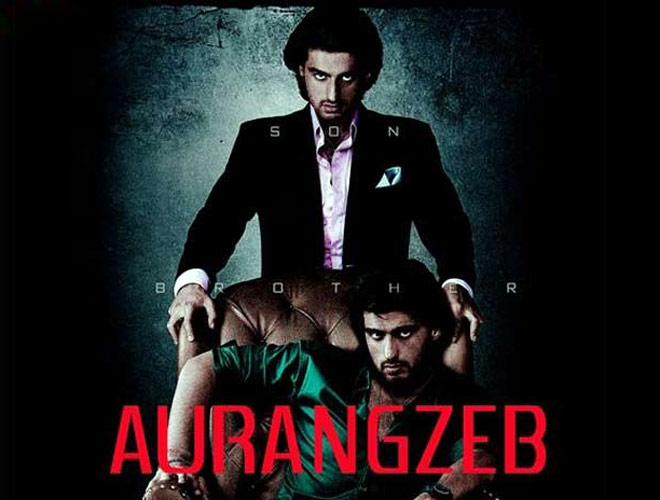**
**
On the other end of the spectrum is the brooding solo by K Mohan, a rather pulsing, passionately emotive voice that articulates, “dekho saare dhaage toote,” (nice touch, Puneet Sharma) and some emotional or literal release into the sky, of tentative dreams on the branches of love ( “teri shakhon pe hai mere sookhe sookhe se sapne” ) without holding anything back.
**
And while there is a generation looking for more than recycled tradition in Hindi cinema, there is another breed of listeners craving to reconnect with the soulful earthiness of music stripped off all gloss, all noise. The restfulness of Sufiana minimalism, the sweetness of folk instruments and the resonance of simplicity in Jigra Fakira rounds off the album’s gritty edges. The other music director of Aurangzeb, Vipin Mishra quietly moves into the album with this stirring song voiced by Keerthi Sagathia and then with the title track (Aurangzeb-rock version) walks us down a gravelly terrain with a delicious guitar detour in the middle. His instrumental version of the same track is mellower, calmer and rather expansively paints the canvas with atmospheric strokes. The main theme (Trial by Fire) is another evocative instrumental. Symphonic, richly orchestrated and yet with gentle, quiet notes punctuating the rousing drama.
**
Gurgaon as news reports will tell us is now a playground of colliding forces, extreme ambition and a boiling crime and the instrumental track, Battleground Gurgaon stages a powerful, dramatic and yet restrained interplay of rising and ebbing sounds to capture the inherent tensions in what the name stands for.
**
There is sweep, passion and swirling emotion in Vipin’s instrumental tracks, demonstrating that these are not stock, randomly picked or composed pieces but will texture the story, prop situations and underline the subtext.
**
The music of Aurangzeb demonstrates that the regular Hindi film album is no longer regular but has started doing its own thing with local and global influences. It is no longer easy to classify Hindi film music because it is so inclusive, so fearless..
Listen to Aurangzeb..if only for the unpredictable ride it takes you on.






